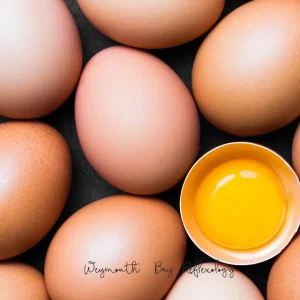
Cracking the Ovulation Code: Your Fertility Guide
Understanding ovulation, the game-changer in your monthly cycle, is key to steering your fertility journey. Here's a straightforward guide:
Ovulation: The Main Act
Ovulation, the linchpin of your cycle, follows the follicular phase. Hormones kick into action, follicles produce oestrogen, and an egg matures, poised for its journey through the fallopian tube.
The Trigger: A Precise Moment
A surge of luteinising hormone (LH) prompts the egg's release into the fallopian tubes, where it awaits either fertilisation or reabsorption. You might feel a twinge or mild pain in your lower pelvis, usually on the side of the releasing ovary. This sensation could last a few minutes or extend over a day or two. Some women might even notice light bleeding or spotting.
Fun fact: In German, it's called 'mittelschmerz', meaning 'middle pain'.
Smoother Passage: Mucus and Cervix Shifts
Simultaneously, oestrogen, the egg's ally, transforms cervical mucus from non-fertile (white, thick, sticky) to fertile (clear, slippery, wet). This facilitates a sperm's journey to the fallopian tubes. Your cervix softens, descends, and slightly opens, all in aid of the passage of sperm.
The Corpus Luteum: A Remarkable Transformation
As the egg departs, the collapsed follicle magically reshapes into the corpus luteum, a gland producing progesterone. This hormone either supports embryo development or fades away during the luteal phase, anticipating your next menstrual cycle.
The Optimal Time for Conception
Ovulation marks your prime time for conception. Conversely, if you're not actively trying to conceive, it's the time to exercise caution or employ protection. If you're tracking your temperature, you might observe a dip before ovulation, succeeded by a rise of at least 0.3°C, which should remain elevated for at least 3 readings.
Detecting Ovulation: Clear Indications
- Sensitive breasts
- Heightened libido
- Increased energy levels
- Ovulation discomfort
- Egg-white-like cervical mucus
Factors Impacting Ovulation
Several factors can influence ovulation:
- Post-contraception anovulation (especially after hormonal pill, coil, or implant use)
- PCOS (remember, management is crucial)
- Hormonal imbalances (like high LH, high testosterone, low progesterone, etc.)
- Stress (post-pandemic, anyone?)
- Being underweight (your body shifts into 'safety mode', inhibiting ovulation)
- Peri-menopause, where ovulation becomes erratic
Enhancing Ovulation
Yes, it's possible to enhance ovulation. You can fine-tune the hormonal balancing act that leads to ovulation through a combination of nutrition, lifestyle adjustments, supplements, and reproductive reflexology.
If you have physical issues with your ovaries, reflexology can still lend support, alongside assisted fertility treatment in a clinic. Remember, it takes 3 months for an egg to mature and be ready for fertilisation. What steps are you taking to prepare yours?
For deeper insights into monthly cycles, conception readiness, pregnancy, and how holistic therapies can assist, bookmark this site at www.weymouthbayreflexology.co.uk.
